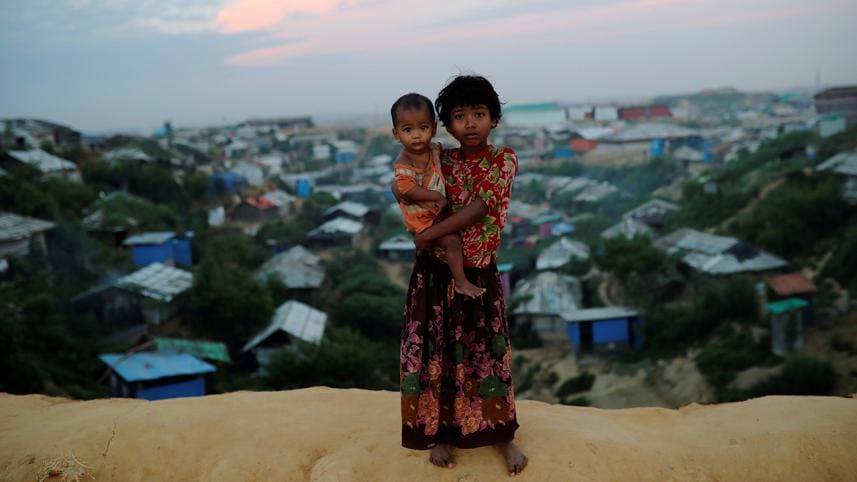Future of Rohingyas lies in dignified return: UNHCR

UNHCR Assistant High Commissioner for Protection, Volker Turkhas has laid emphasis on safe and dignified return of Rohingya people to their place of origin in Myanmar with full restoration of their rights.
"Their future lies in return in a condition of safety, dignity and with full restoration of their rights," saidthe UN Refugee Agency official in a video message on Monday from Rohingya camp in Cox's Bazar.
He said it is absolutely clear that they, now stateless people, belong to Myanmar.
Turk is currently visiting Bangladeshto assess the situation of the Rohingya people in Bangladesh and explore potential solutions.
Director of the Division of External Relations, Dominique Hyde and Director of the Bureau for Asia and the Pacific, Indrika Ratwatte are accompanying him.
Turk said Rohingya people have been denied a sense of belonging and suffering repression. "And it's very important that they are in safety as we can see here in the camps around Cox's Bazar."
He said the Rohingya people here get a sense of belonging now and that is precisely what the registration does.
The group spent the day meeting Rohingya refugees in Cox's Bazar.
They also visited one of five centres in the refugee settlements where the joint Bangladesh Government-UNHCR Registration exercise continues.
More than 110,000 refugees have now received new fraud-proof ID cards, according to UNHCR.
For many, it's the first proper identity documents they have had - vital for their protection and access to services.
UNHCR says registration plays a key role in establishing that individuals have been displaced from Myanmar and have the right to return to their country when it is safe for them to do so.
Turk began his Bangladesh on March 16 and wrap up his visit on March 22, said an official.
Bangladesh is now hosting over 1.1 million Rohingya people, officials said.
Over 745,000 Rohingya people including more than 400,000 children have fled from Myanmar's Rakhine State to Bangladesh since August 2017
More than 16,000 Rohingya have arrived since January 2018.



 For all latest news, follow The Daily Star's Google News channel.
For all latest news, follow The Daily Star's Google News channel.
Comments